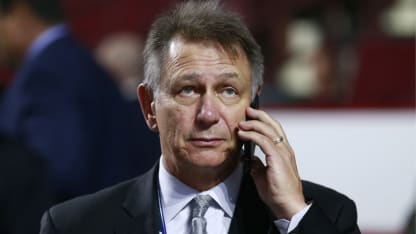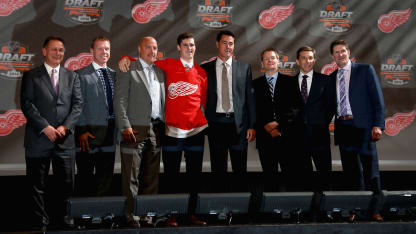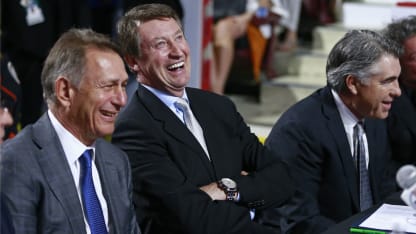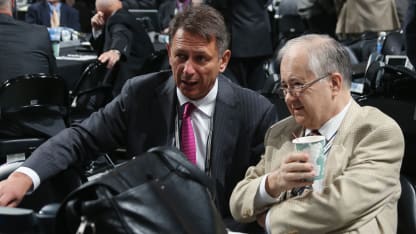But there are a multitude of others and Holland has been compiling a list of names as a reminder to reach out with thank-you notes and calls.
"For two years, if Jack [Shupe, his junior coach in Medicine Hat] didn't believe in me, I wouldn't have had a pro career," Holland said. "If Bill Dineen wouldn't have believed in me, I wouldn't have had a scouting career. If Neil Smith and Jim Devellano didn't believe in me, I wouldn't have become a general manager of the Detroit Red Wings. So I look at my own career, I realize along the way by people believing in me, I was able to get an opportunity to succeed. So that's my mentality as a general manager, to believe in people."
Holland was 19 when he was selected No. 188 by the Toronto Maple Leafs in the 1975 NHL Draft. He played nine pro seasons in the Hartford Whalers and Detroit organizations and got into four NHL games, one with the Whalers in 1980 and three with the Red Wings in 1984.
He needed that strength of belief to carry on after playing his first NHL game, against the Rangers at Madison Square Garden on Nov. 16, 1980, a day of career highs and lows.
Rangers forward Anders Hedberg scored three goals on him, one in each period, and the Whalers lost 7-3.
"After the first period it's 1-0 for the Rangers and I made some saves and I felt good," Holland said. "I'm sitting in the locker room in the intermission thinking to myself, 'Ken, you finally made it.' I felt like I'm an NHL goalie. In the second period, the Rangers get 21 shots and score four goals. And it's 5-1 for the Rangers after two periods and I remember sitting in the locker room thinking to myself, 'Ken, you're never going to be in the NHL ever again, so really savor and enjoy the third period.'"
Whalers goalie John Garrett, Hartford's backup that night, remembered thinking Holland had been thrown to the wolves in a back-to-back situation. Hartford, which was 21-41 with 18 ties that season, lost 8-4 at home to the Washington Capitals the previous day.
"Every time one went in, he'd look over with kind of a forlorn look," Garrett said. "Really, he was incredible, but we weren't very good. They thought it was the goaltending, but Turk Broda in his prime wouldn't have helped that team."
Holland's induction into the Hall of Fame came one day before the 41st anniversary of that game.
"From that game and now you're asking me about going into the Hockey Hall of Fame, there are a lot of emotions while I'm remembering all the people that contributed," he said. "So many people involved on and off the ice that it doesn't happen without all those people. I could go on and on and on with names. In order to be a Builder you have to have a lot of talented people around you on and off the ice in order to do that. So I'm not tricked into thinking I'm smarter than everybody else. I'm just a little guy from Vernon, B.C., that chased his passion and had a lot of people along the way that believed in me and gave me an opportunity.
"And you've got to have some luck along the way."





















